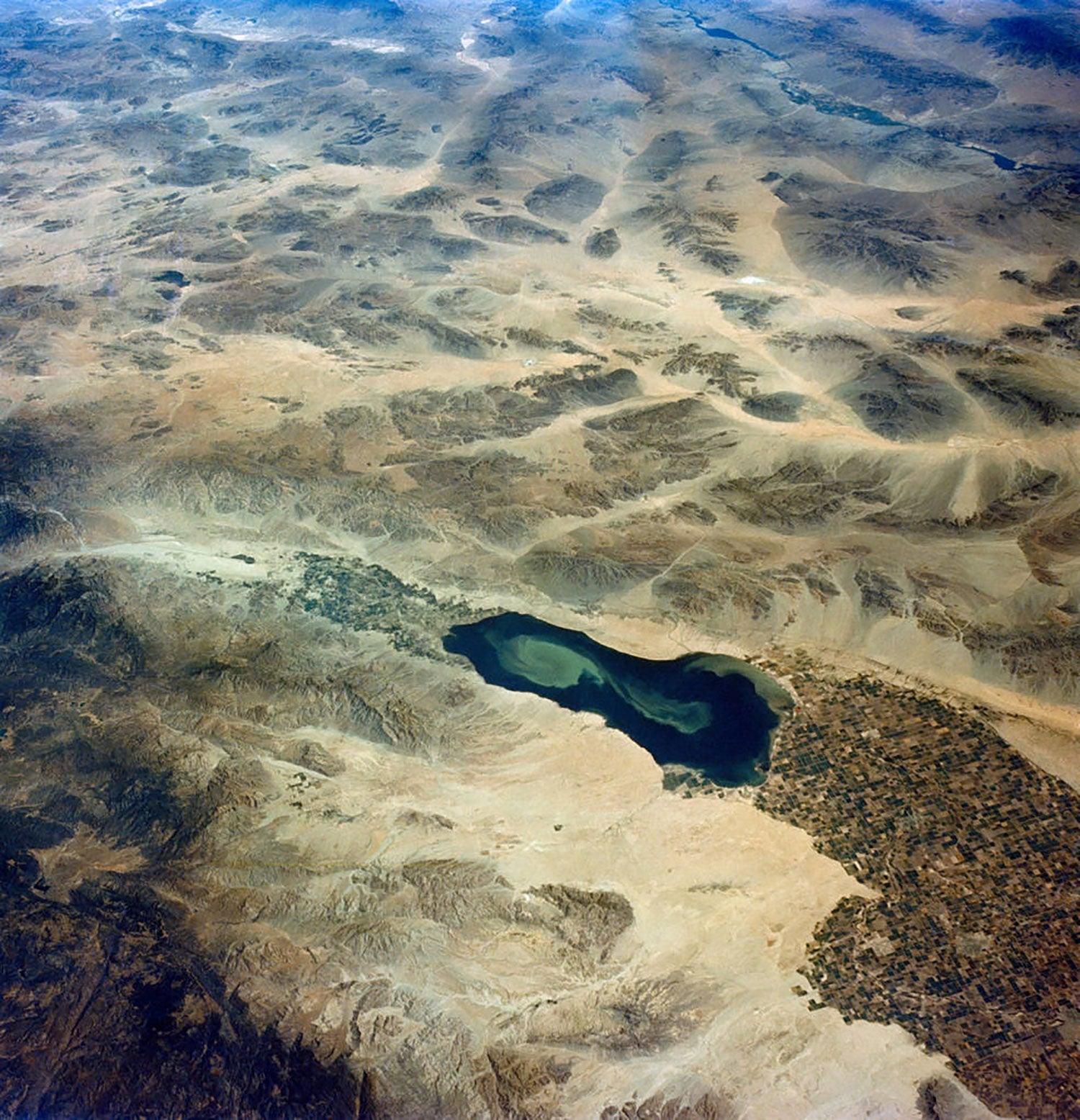Satellites reveal widespread decline in global lake water storage
Over half of the world’s freshwater lakes are in decline, storing less water than three decades ago, according to a study led by CIRES researchers that was featured on the cover of Science.
The scientists took a new approach, focusing on lake and reservoir water storage with data from nine different satellites—over 250,000 images spanning three decades— using an innovative technique to reconstruct past water storage data. They also identified the causes of lake water storage decline: climate change (including warming temperatures and reduced inflows leading to evaporation), human consumption and sedimentation in reservoirs.
“This is the first comprehensive assessment of trends and drivers of global lake water storage variability based on an array of satellites and models,” said lead author Fangfang Yao.

The Salton Sea in Southern California.
Principal investigators
Ben Livneh; Balaji Rajagopalan; Fangfang Yao
Funding
National Oceanic and Atmospheric Administration (NOAA); National Aeronautics and Space Administration (NASA); European Space Agency (ESA)
Collaboration + support
CU Boulder’s Cooperative Institute for Research in Environmental Sciences (CIRES), College of Engineering and Applied Science, Western Water Assessment; Kansas State University; University of Virginia’s Environmental Institute, Department of Geography and Geospatial Sciences; International Institute for Applied Systems Analysis
Learn more about this topic:
Satellites reveal widespread decline in global lake water storage

